
Santa Barbara County Deputy District Attorney Tyson McCoy speaks Friday during a human-trafficking awareness forum at the Santa Maria Country Club. Janene Scully / Noozhawk photo
What most see as a simple cellphone can lead to danger for youths, Santa Barbara County Deputy District Attorney Tyson McCoy told a Santa Maria crowd Friday.
McCoy, an expert on prosecuting criminals involved in human trafficking, now works for the Santa Barbara County District Attorney’s Office after being hired from Kern County.
“I tell people all the time, your kid holds the biggest crime scene in the world in the palm of their hand,” Tyson said of cellphones with social media applications allowing traffickers to connect with vulnerable youths.
The Rotary Club of Santa Maria South hosted the latest in a series of human-trafficking awareness forums Friday at the Santa Maria Country Club, drawing about 160 people to hear from those working to combat human trafficking, others focused on helping survivors and one woman who escaped.
As he warned about the danger of social media for youths, McCoy recalled a girl who sent naked pictures to a man she met on social media. He then threatened to spread the photos to her friends and school if she didn’t meet him in person.
When they met, the man raped her twice, drove her to Los Angeles and then set her on fire, prompting audible gasps of horror from the crowd.
Traffickers use social media to connect with girls, and sometimes boys, and law enforcement officers have learned to translate the emojis used by criminals.
“When I looked at a social media page, it’s like I’m reading hieroglyphics,” Tyson said.

Video games also pose a danger to youths with predators trying to make connections.
“Lock down those things. Be a parent,” he said.
A new trend has seen gang members enter into trafficking girls to make thousands of dollars daily.
“Why would you waste your time selling drugs and guns when you have a girl that can make you six figures in one year, and when you get pulled over by the police you say, ‘That’s my girlfriend,’ and no one’s the wiser?” McCoy said. “That’s what’s going on with gangs.”
Another myth claims that sex workers give consent to participate in the acts. In reality, traffickers prey on the weaknesses of victims.
“No one wants to sleep with a guy 10 times a day,” McCoy said.
For many, they began being trafficked for sex as a young teen, spending several years in the lifestyle.
“She’s not a hooker. She’s a child that came up in a bad life, probably molested, and is now being taken advantage of,” McCoy said, adding that the girls stay because the guys psychologically manipulate them.
While working in Bakersfield, McCoy said he handled cases where the men trafficked girls in Lompoc, Santa Maria and elsewhere on the Central Coast.
“Sex trafficking of young girls is happening right here in our backyard,” Assistant District Attorney Kelly Duncan told the crowd. “These are our kids.”
Alia Azariah, a survivor leader and director of after care for the Safe House Project, shared about her experience being trafficked by various men for 14 years on the Central Coast.
She spoke about why trafficking victims don’t leave, noting the same question was asked of domestic violence victims decades ago.
“The reality is that human trafficking’s insidious, and these traffickers are smart and they are creative,” she said.
For many children and adults, remaining with their trafficker is “the less bad option,” she said.

Santa Barbara County Assistant District Attorney Kelly Duncan leads off the list of speakers for Friday’s human-trafficking forum in Santa Maria on Friday. Janene Scully / Noozhawk photo
There’s also a psychological aspect, or trauma bonding, where the person hurting the victim also fulfills their needs for food, home or acceptance.
To combat the crime, a Santa Barbara County Human Trafficking Task Force formed in 2013 with efforts focused on assisting victims, prosecuting traffickers and more.
One effort involving multiple agencies focused on a special court program to identify at-risk girls in Juvenile Hall, Duncan said.
Prosecuting attorneys can face huge challenges getting cooperative victims, who often experienced trauma even before being trafficked, Duncan said.
“The prosecution of these crimes is no small feat,” Duncan added. “Often we’re faced with very complex legal landscapes in each of these trafficking cases.”
However, she said the District Attorney’s Office remains committed to prosecuting those involved in trafficking people.
“We want to send a message to perpetrators of this crime and to the community that this will not be tolerated in Santa Barbara County,” Duncan said.
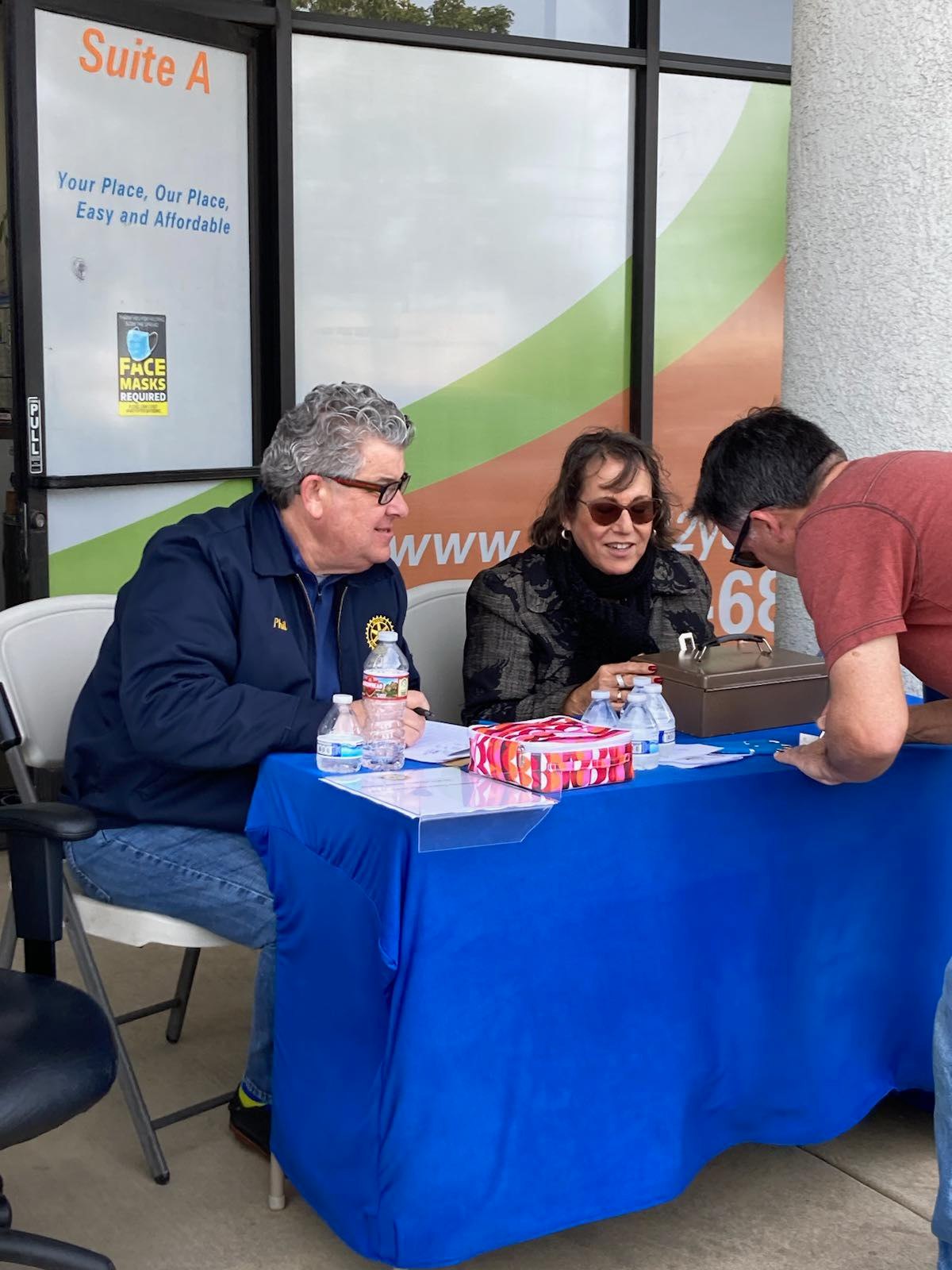
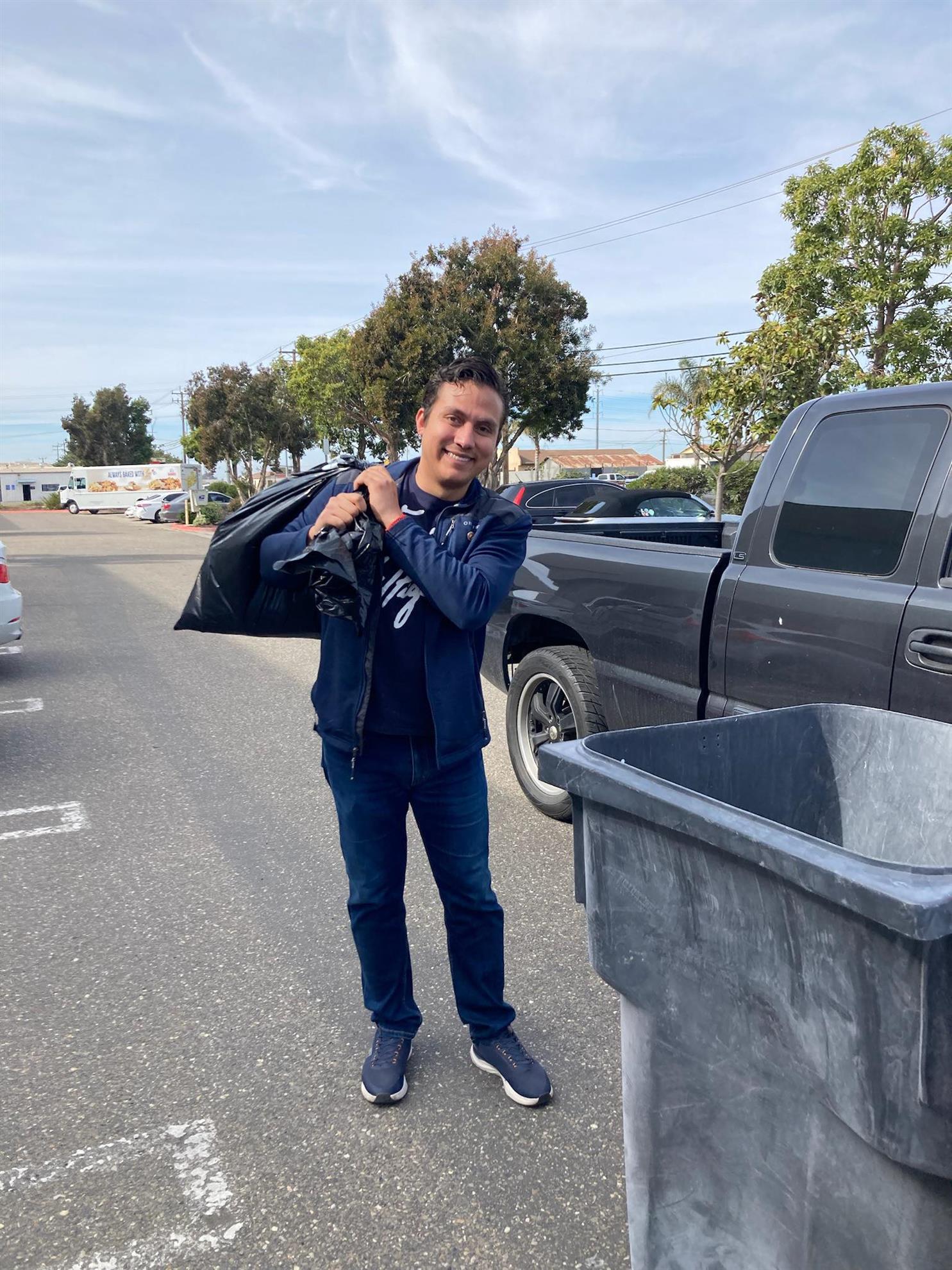
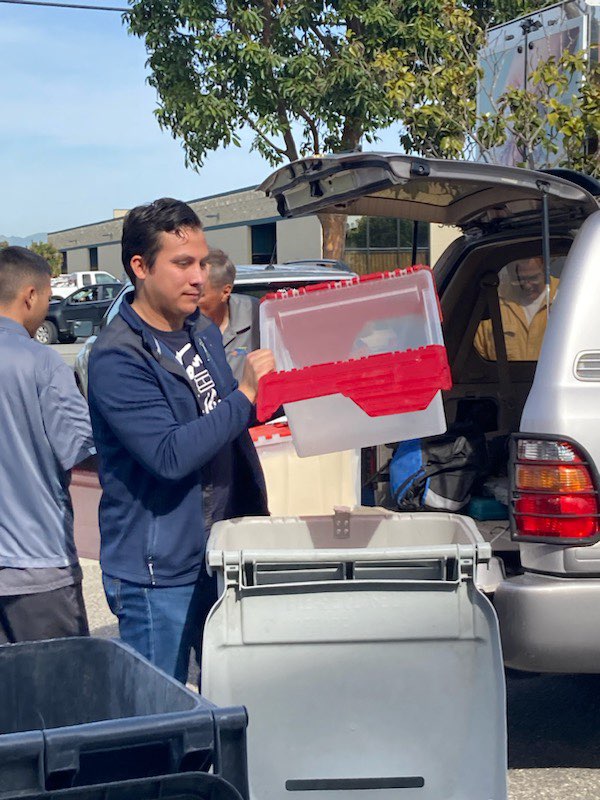
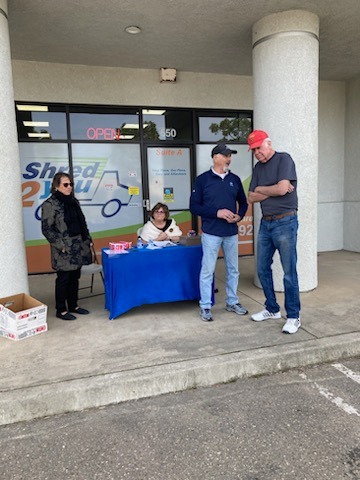
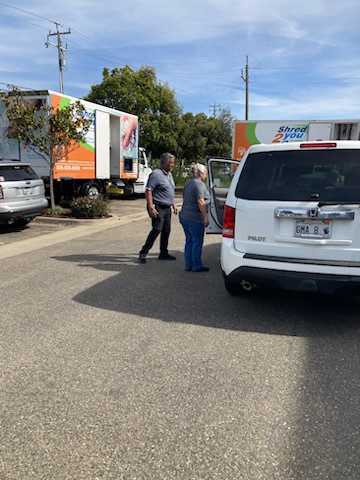
Human Trafficking Forum - Generously Sponsored by:
Rotary Club of Solvang, Rotary Club of Lompoc, Rotary Club of Santa Maria Breakfast, Rotary Club of Santa Maria South, Rotary Club of Nipomo, Rotary Club of Cayucos, Allan Hancock College, United Way of Northern Santa Barbara County, Santa Maria Valley Chamber of Commerce, Toyota of Santa Maria, and The Law Office of Philip F. Sinco.
The following article is by April Chavez and was published in the Santa Maria Times on January 29, 2023.
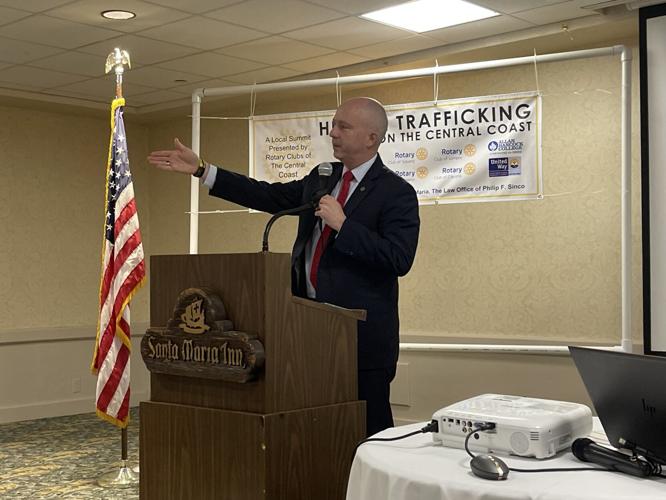
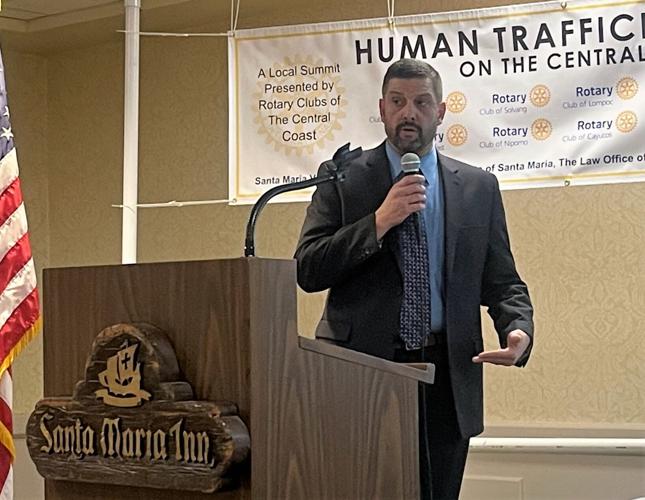
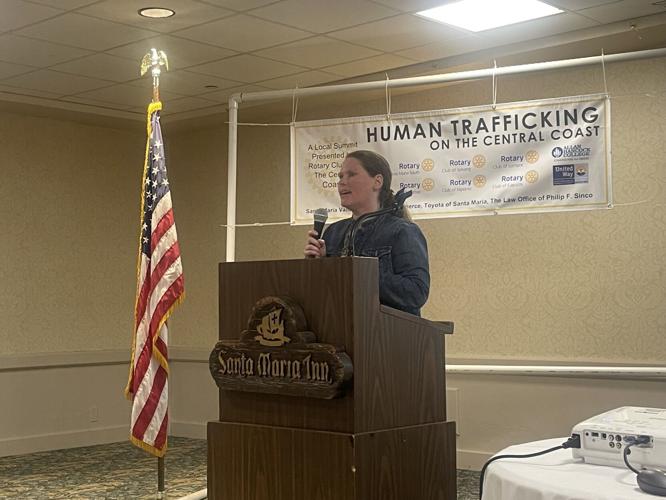
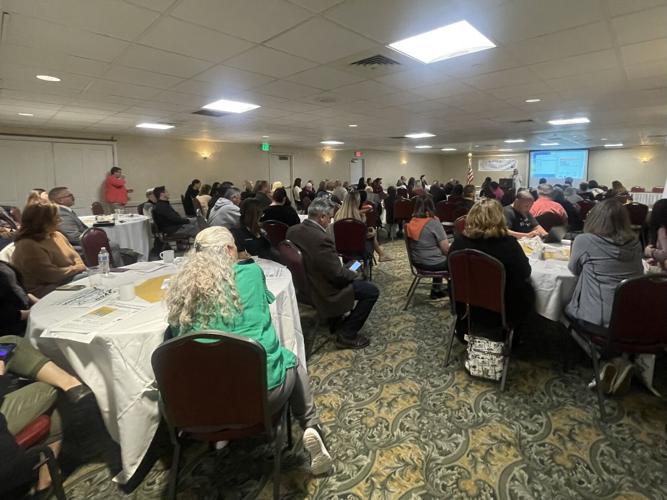
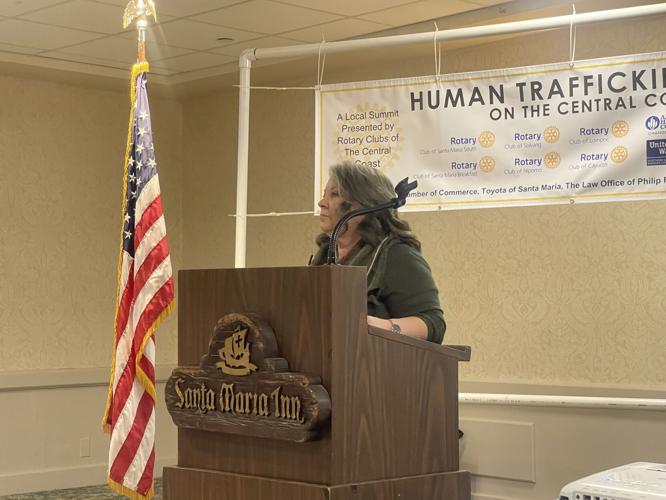
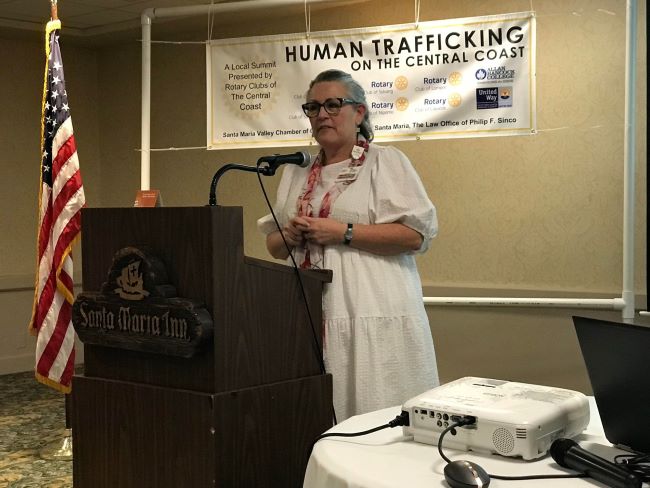
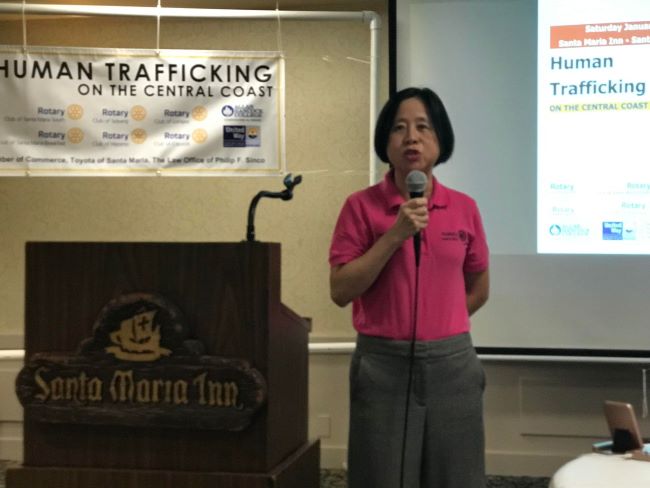
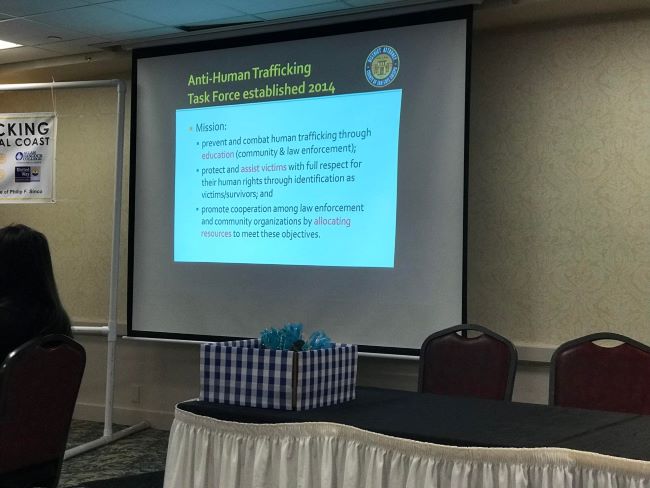




.jpg)
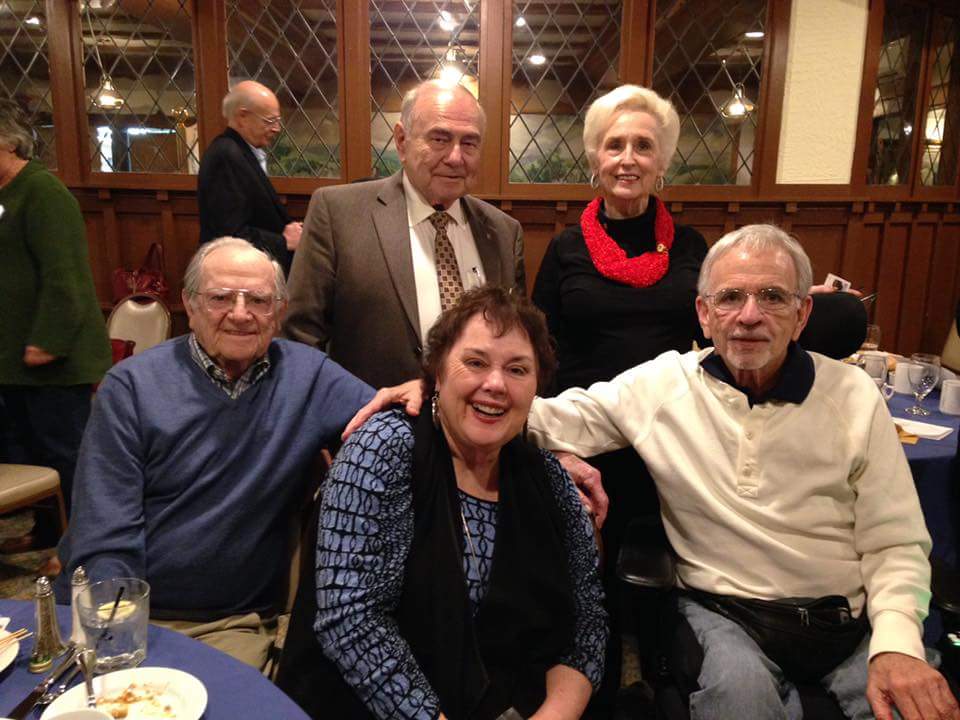
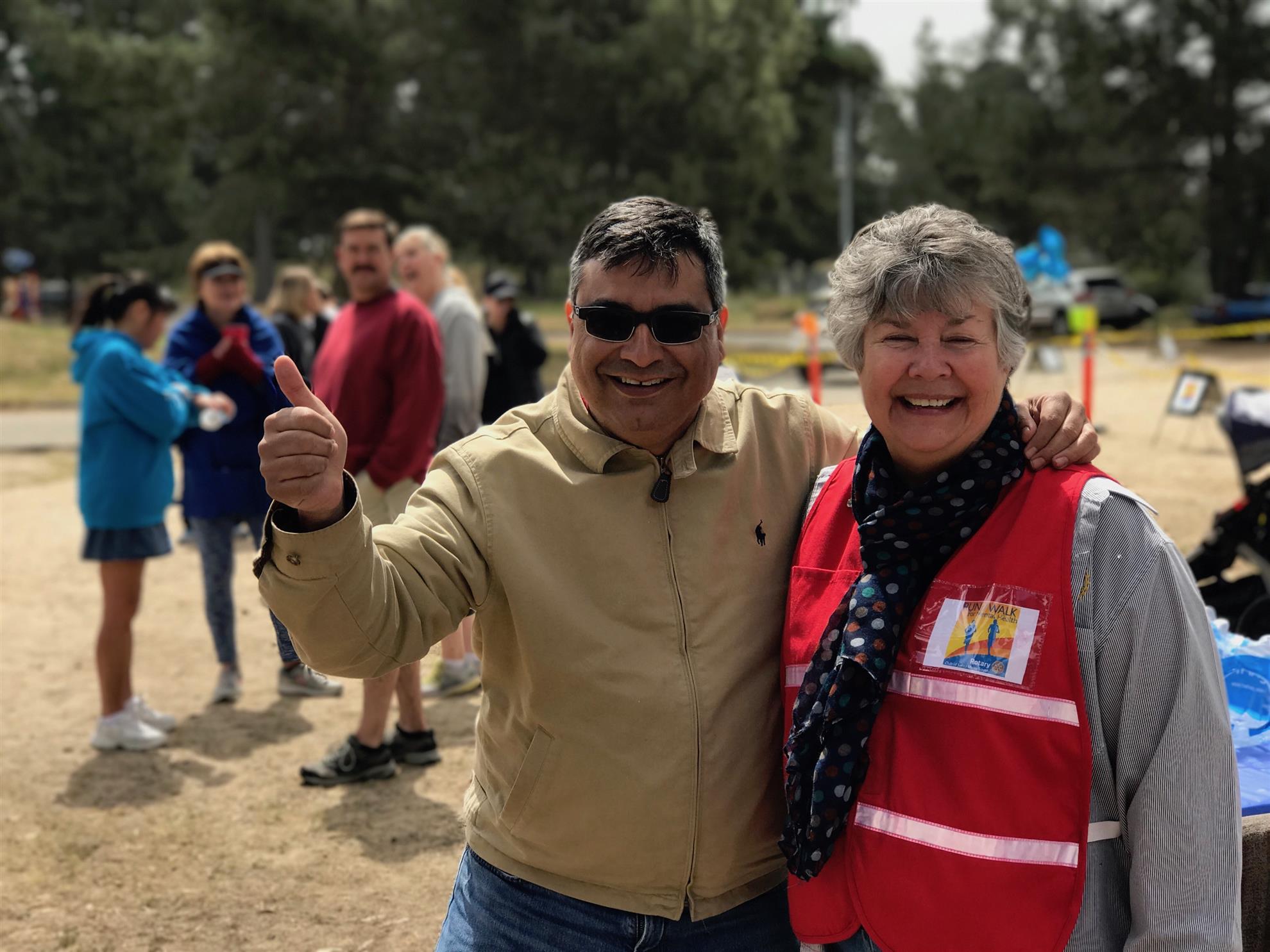
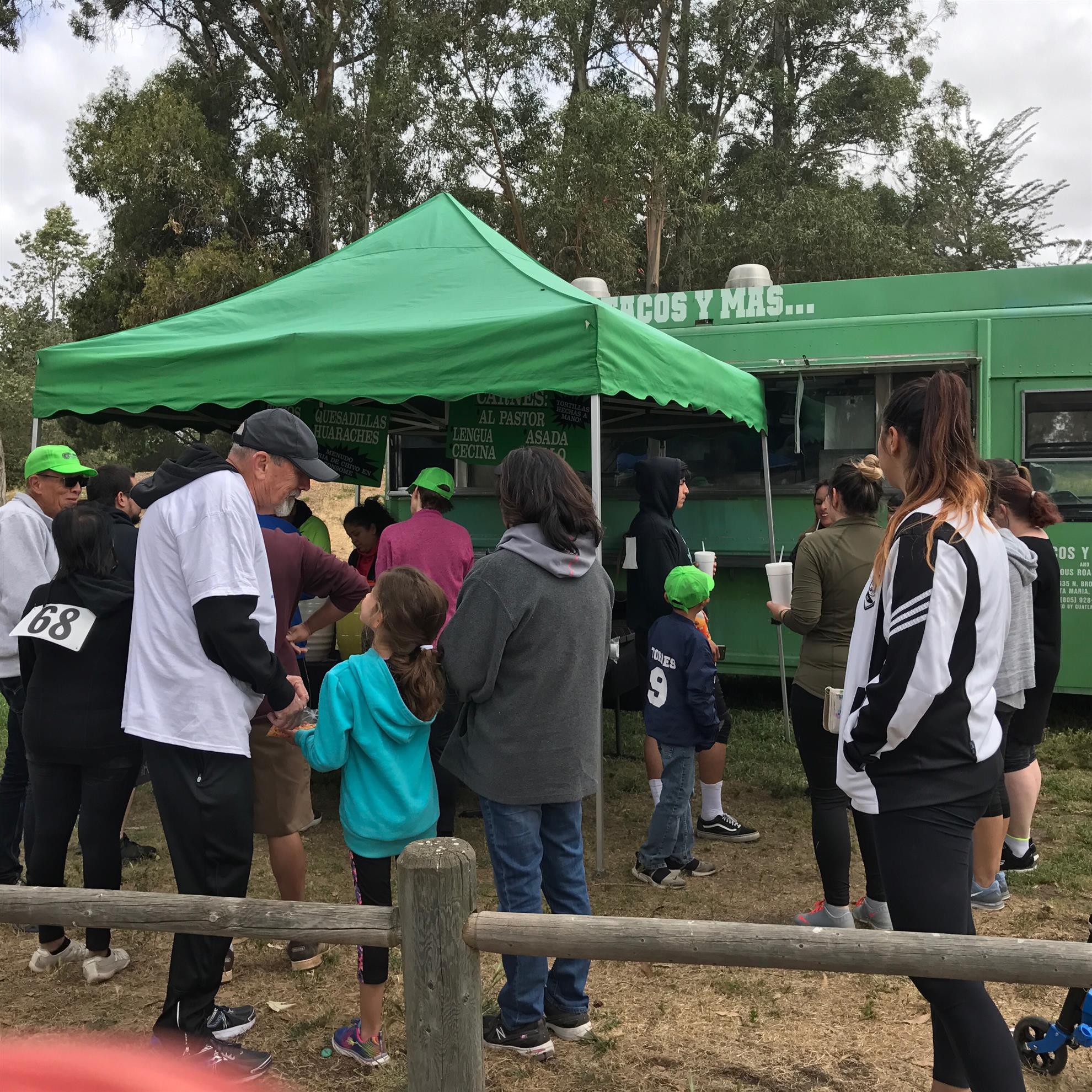
.png)













Service Above Self
Santa Maria, CA 93454
United States of America